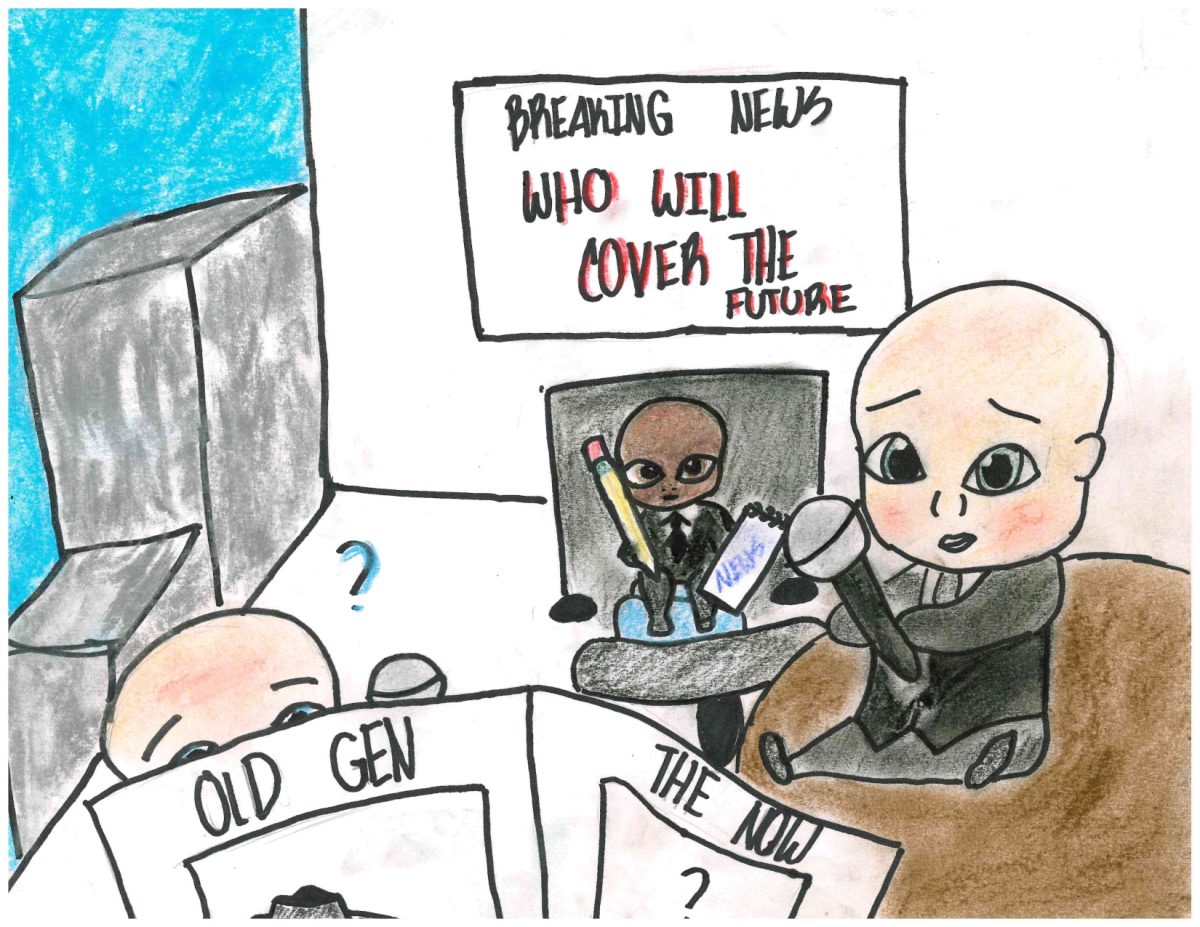One of the pillars of our country is our First Amendment right to freedom of speech, press, religion and assembly.
It upholds some of our most critical rights as American citizens, and even transcends politics, as both sides see the necessity of the amendment.
Part of that amendment protects our right to freedom of press, which helps us uphold and protect the rest of our amendments.
However, with that right to a free press, comes a responsibility for those involved.
This responsibility is something that has been upheld for decades, and must continue to be upheld by every new journalist that joins the field.
New journalists are joining the field at an interesting time.
According to a study done by Gallup, a global analytics and advisory firm, only about 31% of Americans “have a great deal or a fair amount of trust” in mainstream media.
While there are many reasons for this lack of trust from American citizens, much of the blame has to fall on the news corporations themselves.
Even though politics often play a role in people’s consumption of the media, news stations should absolutely not play into this.
Unfortunately, however, current events tend to have an overwhelming effect on the reporting world, particularly in regards to times of political aggression and moral disruption.
In a perfect world, those who wish to report the truth would ultimately do it.
With that being said, one of the main points of the Society of Professional Journalism’s Code of Ethics is to “see truth and report it.”
Seeking truth does not mean leaning into political angles.
Seeking truth means reporting the facts of a situation and allowing the reader to form their own opinions.
The grave issue lies in the idea that opinion is the truth, especially the opinions of the biggest news corporations in the country. The distrust is absolutely understandable.
Many of these people that distrust the media distrust it because so many stations have a clear political bias.
It is a distrust that is completely unnecessary and fostered by large corporations like FOX and CNN.
However it is not just political issues that future journalists will have to be wary of.
It will be any new wave of problems brought on by AI and other similar technologies.
As fantastic as AI can be as a tool, it brings with it an inherent risk for misinformation.
Misinformation is the direct enemy of journalism and the press, and only risks dragging down the reputation further.
It is important for both current and future journalists to acknowledge the risks that AI poses to the profession, and take steps to minimize the risk.
While a clear solution might not be available right now, it is important for future journalists to be aware of the risks that are presented by AI.
The media’s reputation has also seen a hit due to the misinformation and “independent journalism” on social media platforms.
Due to the lack of regulation on many of these social media platforms, such as X and Facebook, misinformation is often pushed by “independent journalists,” who do not bother to follow any kind of journalistic code.
This brings with it an interesting dilemma, because social media can be such a valuable platform on which to spread information and awareness for and about various things.
Unfortunately, it can also be a place where misinformation is spread by either misinformed people, or people with some kind of agenda.
For journalists, there is a strong duty to have integrity within their writing.
However, in a world where the “best” story is the one full of drama and bias, that seems to be a lost cause for many reporters.
Maintaining a reputation in a career that sometimes lacks honesty is no easy job, hence why programs such as scholastic journalism is of utmost importance in today’s day and age.
While The Arrowhead strives to live up to this criteria, we can only hope other journalists will, as well.
Programs that encourage youth to write truthfully and ethically, as well as continue to delve into their passion for writing, are what keep professional journalism alive.
Without them, there would be no guidelines or rules, definitely causing lost reputations and careers for many.
Effective scholastic journalism programs teach the honest and crucial rules regarding reporting and the morality involved.
Students are taught to respect their sources and abide by a professional code of ethics.
The hope, with programs such as these, is to create not only young journalists, but create lasting integrity and authenticity in the reporting world.
Scholastic journalism is an opportunity to introduce a generation of journalists that report the truth, which we have a critical need for today.
By making a conscious effort to increase the population of honest journalists, scholastic journalism programs actively fight against the lack of responsibility currently exhibited in some journalism organizations and with some reporters.
The outcome of these programs simply relies on the participation of a group of students who care about reporting the truth and keeping society informed.
Scholastic journalism has generational impact
To keep authentic journalism alive, teaching journalism in middle and high school allows students to learn about what it means to report with a conscience. These programs are the backbone of promoting truthful reporting to youth and future generations.
May 30, 2025
0
Tags:
More to Discover







